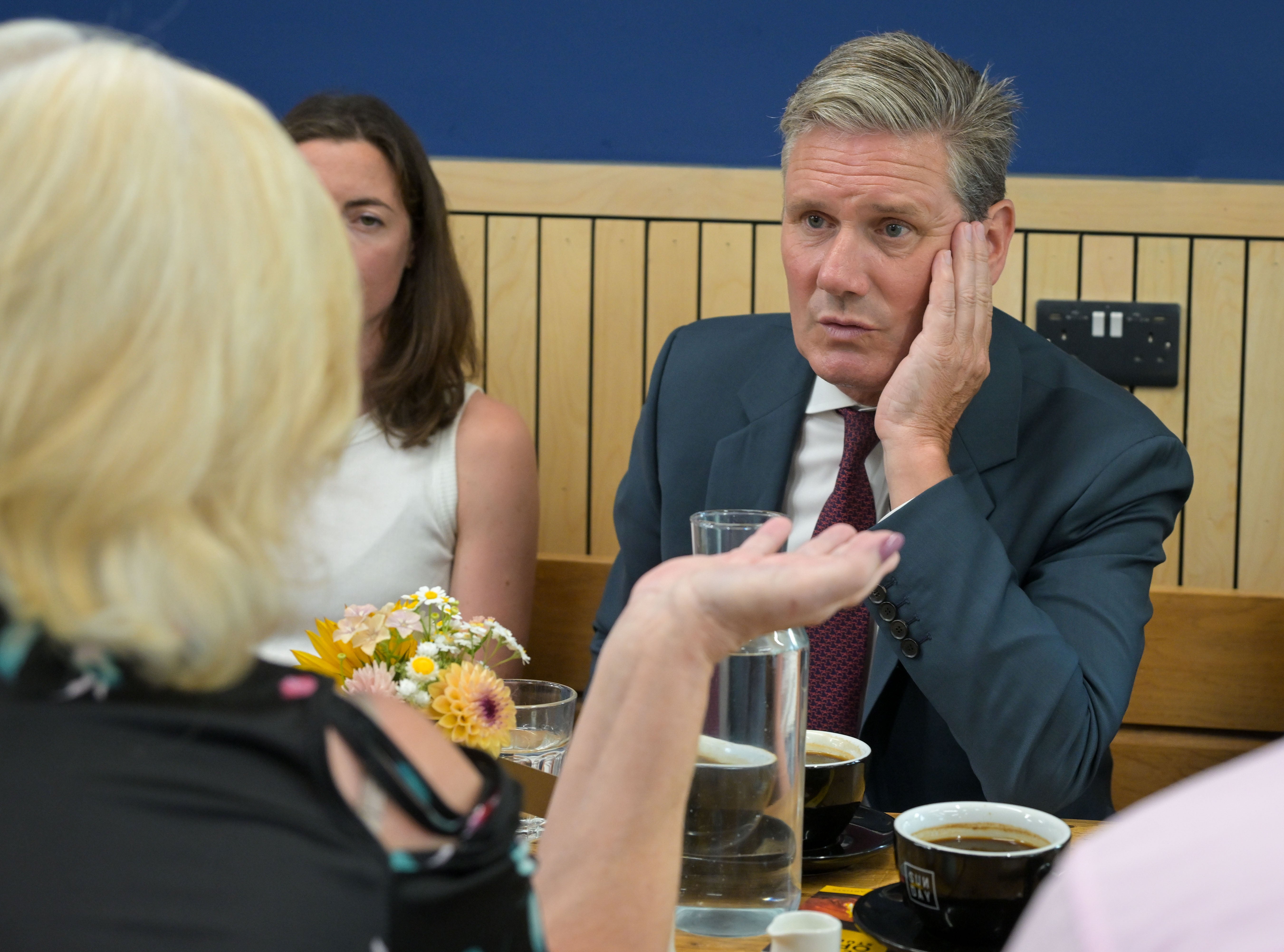Keir Starmer’s plan to help with energy bills has two major flaws
Letters to the editor: our readers share their views. Please send your letters to letters@independent.co.uk

It is welcome to see Sir Keir Starmer finally unveil Labour’s plan to support millions of people to get through this coming winter’s energy cost crisis. Holding the £2,000 annual price cap to its present level is laudable, while securing the £29bn needed to pay for this cap from a retrospective windfall tax on the cash-rich energy producers goes much further than the other main parties, and puts pressure on Sunak and Truss to match or counter that offer.
However, there remain two flaws in the proposals that still require addressing.
Firstly, its aim to be “comprehensive” spreads support away from the most vulnerable, notwithstanding the availability of other targeted support that already charities are calling “inadequate”. Higher-income groups, where assets and savings were often accumulated under lockdown, have much more resilience to energy price increases and should be exempted above a certain threshold from some or all of this relief.
Secondly, the price freeze is only a temporary plan and does nothing to exercise proper control over price setting and regulation. Not combining this price cap with a longer-term plan for returning both the energy and water utilities – which have so manifestly failed to serve the public interest – into public ownership, as both Gordon Brown and the TUC have recently advocated, would be a lost opportunity.
Paul Dolan
Cheshire
Sunak and Truss are no defenders of free speech
In the wake of the appalling attack on Salman Rushdie, we are hearing a lot about “freedom of speech” from the two candidates who are looking to become the next prime minister of the UK.
Reacting to the attack, former chancellor Rishi Sunak praised Rushdie as a “champion of free speech and artistic freedom”. Liz Truss tweeted to condemn the “disgraceful attack on Sir Salman Rushdie”. She wrote: “People must be able to speak freely and freedom of speech must be defended.”
Yet both candidates supported and voted for Priti Patel’s Police, Crime, Sentencing and Courts Act, which severely limits the public’s right to protest and gives the state powers to stop “noisy” demonstrations.
And just two weeks ago, Rishi Sunak promised that if he becomes prime minister he will make the “vilification of the United Kingdom” into an official definition of “extremism”, and that those judged to “hate” Britain would be handed over to the government’s much-criticised Prevent programme for “deradicalisation” and “re-education”.
For her part, Liz Truss has made attacks on “woke” culture – a catch-all term for anti-racism, anti-sexism, anti-homophobia, and respect for human rights – a central part of her leadership campaign. As international trade secretary in 2020, Truss called for the abolition of diversity and inclusion roles in the civil service and attacked what she saw as “liberal groupthink” in Whitehall. Days ago, Truss promised to attack “woke” culture in the civil service.
Sunak and Truss are hypocrites. Neither believes in “free speech” or “freedom” that deviates from their far-right worldview.
Sasha Simic
London
Dangerous individualism
There are many serious social problems to deal with in the United Kingdom. But Liz Truss’s latest transient hustings plea for support through a “war on woke” is of no relevance or value. Woke will sort itself out in its place in society one way or another without interference from unconnected politicians.
The deep-rooted problem is the ascendance of the self-importance of the individual over the group, which is intimately linked with the erroneous belief that rights are absolute.
Once the individual considers themselves more important than the group, community spirit fails and society collapses. Sadly, this attitude is clearly illustrated by many of the recent acts of current ruling politicians whose growing narcissism is leading the nation into dangerous individualism.
Individualism is epitomised by the demand for personal rights. Whether a right is human, civil or earned, responsibility must be the quid pro quo in all cases; without this balance civilised society cannot endure.
To keep up to speed with all the latest opinions and comment, sign up to our free weekly Voices Dispatches newsletter by clicking here
An individual has a right to drive a car but also has the responsibility to obey all road laws. The same applies to the right to freedom of speech, which is laid down in the Declaration of Human Rights, but there is also a clear caveat that no one may be put at risk by what is said.
Matt Minshall
Brittany
Jacob Rees-Mogg
Two articles in the Sunday edition have left me desperately hoping that whatever genetic mutation that has produced our resident parliamentary throwback never escapes into the general population.
What next? Are civil servants failing to iron their coat-tails, coming in with grubby wing collars, changing their quill pens too often or taking insufficient care over their copperplate?
Sarah Wood
Kirkcudbrightshire, Scotland






Join our commenting forum
Join thought-provoking conversations, follow other Independent readers and see their replies
Comments